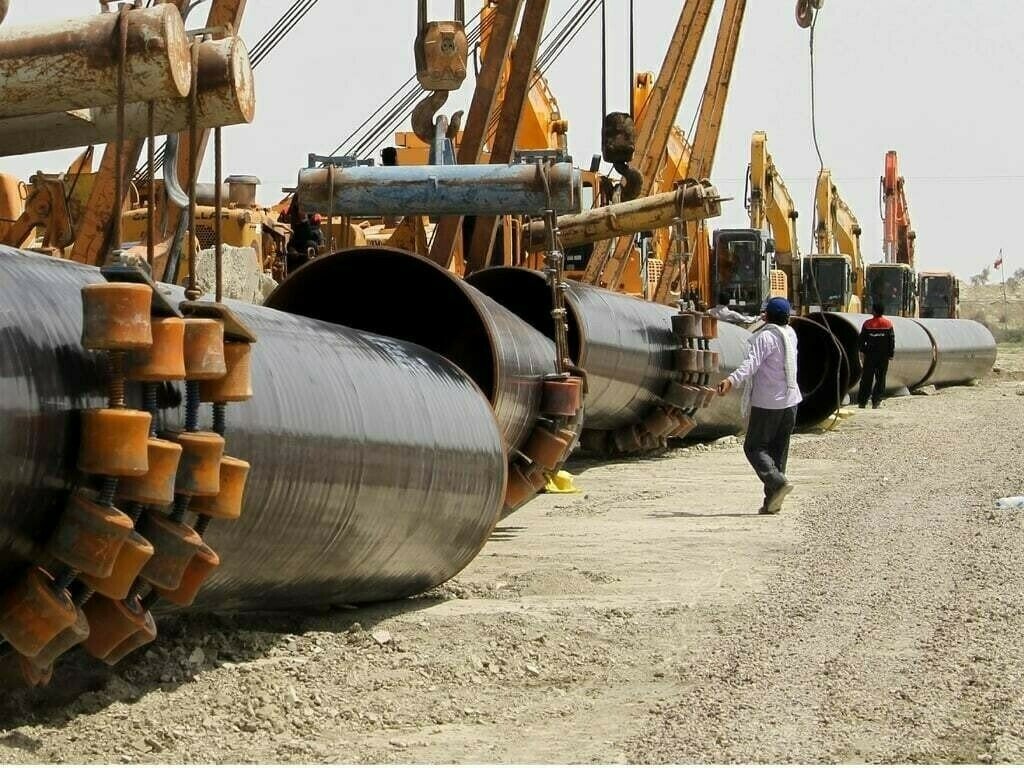The Economic Coordination Committee of the Cabinet has decided to delay the approval of incentives for the Turkmenistan Afghanistan Pakistan India (TAPI) pipeline project
The Economic Coordination Committee (ECC) of the Cabinet has decided to delay the approval of incentives for the Turkmenistan Afghanistan Pakistan India (TAPI) pipeline project. Sources reveal that the ECC aims to undertake a comprehensive professional assessment, ensure the Federal Bureau of Revenue’s (FBR) support, and align the project with the International Monetary Fund’s (IMF) Stand By Arrangement (SBA).
The TAPI Gas Pipeline Project, designed to transport natural gas from Turkmenistan to Afghanistan, Pakistan, and India, has faced a temporary setback as the ECC scrutinizes its economic viability and alignment with national and international financial frameworks.
The Petroleum Division presented details to the ECC, emphasizing the project’s significance and its potential to bring natural gas from Turkmenistan’s Galkynysh and adjacent gas fields to the participating countries. The Inter-Governmental Agreement (IGA) and Gas Pipeline Framework Agreement (GPFA), executed in 2010, laid the groundwork for the project, providing protections and incentives for its execution and operation.
Despite India’s lack of interest, Pakistan has maintained its focus on reaping the benefits of the TAPI project. The ECC was briefed that the Host Government Agreements (HGAs) between Afghanistan, Pakistan, and TAPI Pipeline Company Limited (TPCL) were progressing, with the aim of authorizing TPCL to implement and operate the Pakistan segment of the TAPI project for the next 30 years.
To attract international investment, TPCL formally requested the inclusion of the TAPI Gas Pipeline Project as a qualified investment under the recently enacted Foreign Investment (Promotion and Protection) Act, 2022 (FIPPA). This move aimed to secure financial commitments from prospective international investors and lenders, aligning with the government’s commitment under the GPFA.
The ECC discussion brought to light concerns about the lack of clarity regarding the duration of concessions proposed in the incentive package. Participants questioned the absence of a specified time frame and suggested that concessions typically align with project construction timelines. It was underscored that the TAPI project could result in substantial foreign exchange savings of USD 1 billion annually.
However, concerns were raised about the proposed tax exemptions in the incentive package, with a realization that this might not align with the conditions of the IMF Standby Arrangement. The ECC acknowledged the need for detailed consultations, particularly considering the current geopolitical situation in Afghanistan, to assess the feasibility of implementing the project.
After extensive deliberations, the ECC decided to defer the proposal under specific conditions. Firstly, the Petroleum Division was directed to conduct a meticulous professional assessment of the proposed concessions, specifying the time period for which these concessions would be applicable.
Secondly, the Petroleum Division was instructed to engage with the FBR and relevant provinces, seeking their input and ensuring a thorough understanding of the proposed incentives. Lastly, before any decision is made, the Petroleum Division is required to consult with the Law & Justice Division for the vetting of notifications related to concessions.
This development highlights the government’s cautious approach in ensuring that the TAPI project aligns with both domestic economic considerations and international financial commitments, underscoring the significance of a well-thought-out and informed decision-making process.
